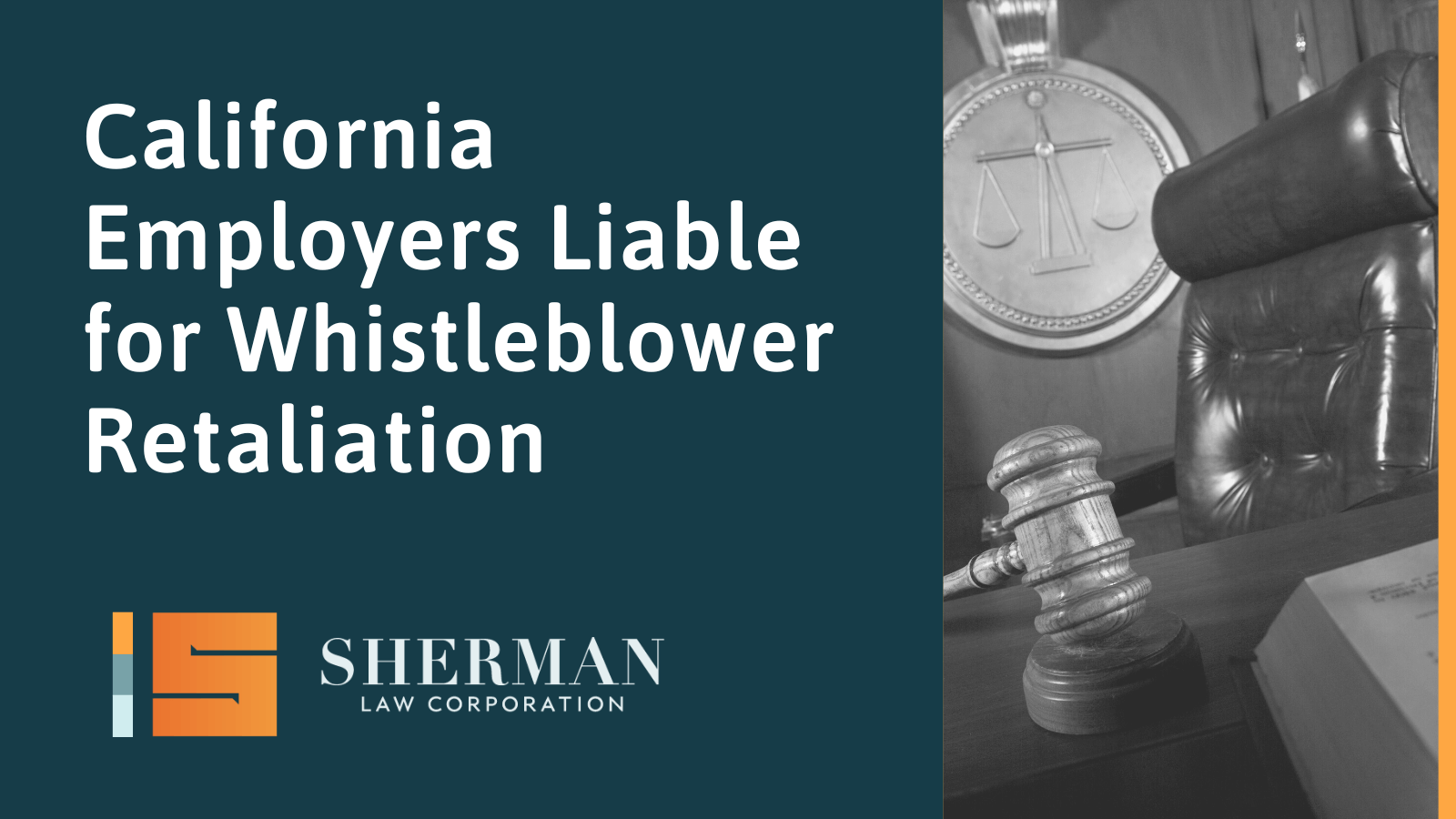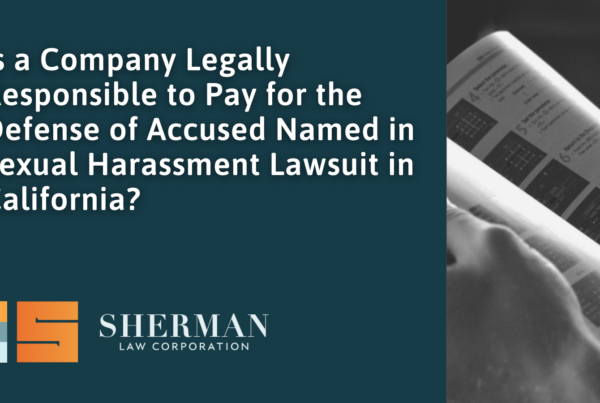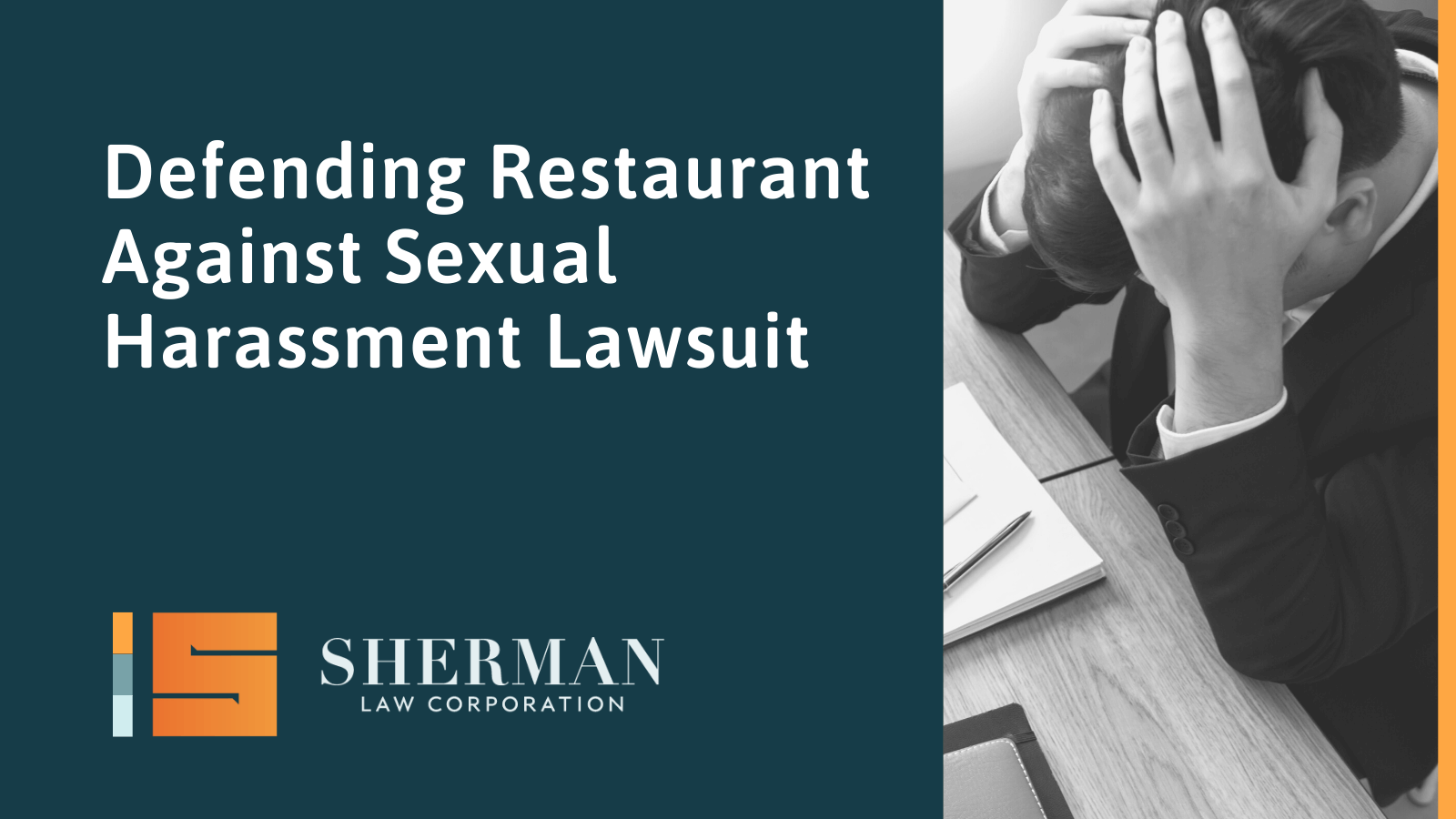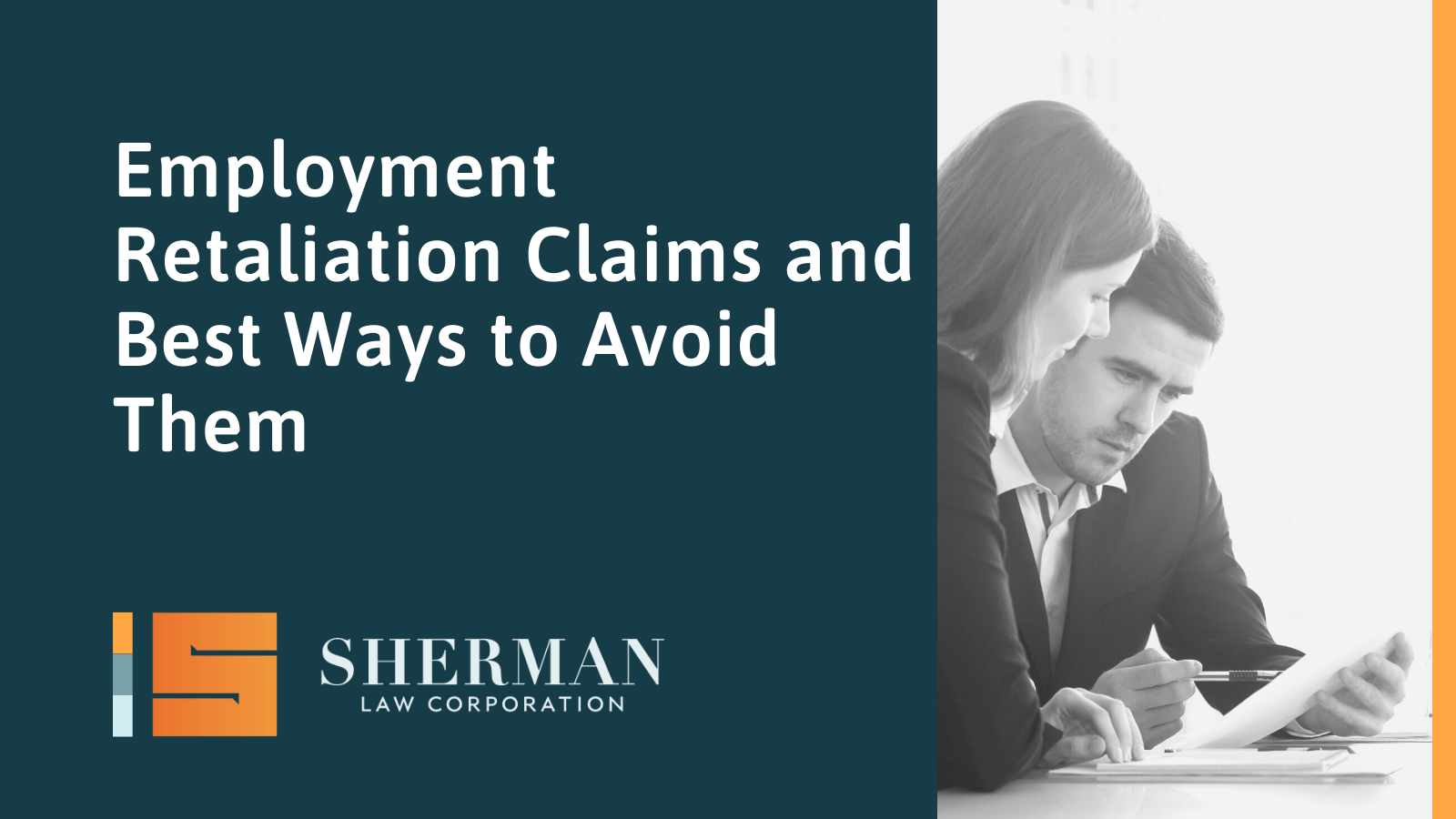
California Employers Liable for Whistleblower Retaliation (Even if the Subject Matter of the Complaint was Previously Known to the Employer)
The California Supreme Court has expanded whistleblower protection yet again.
It recently held that an employee who makes a whistleblower complaint to his or her employer may bring a retaliation claim under the whistleblower statute (California Labor Code § 1102.5(b)) even if the subject of the complaint was already known to the employer.
Prior case law held that an employee whistleblower complaint regarding an alleged violation of the law that was already known to the employer that received the complaint was not protected by law. Accordingly, California employers may not retaliate against an employee who has made a whistleblower complaint, regardless of whether the employer already had knowledge or information about the alleged violation.
Not sure what this ruling means for California employers?
Experienced employment attorney Lisa Sherman explains below.
The case that led to the whistleblower retaliation ruling
People ex rel. Garcia-Brower v. Kolla’s, Inc., decided on May 22, 2023, arose from a complaint made by a bartender to her employer that she had not been paid wages owed to her for three shifts she had worked at Kolla’s Inc., a nightclub located in Orange County, California.
Upon receiving the complaint, the owner of the nightclub responded by threatening to report the employee to immigration authorities, terminating her employment, and telling her never to return to the nightclub.
The employee then filed a complaint against the nightclub with the California Department of Labor Standards Enforcement (DLSE), and the DLSE determined that the nightclub had unlawfully retaliated against the employee.
When the nightclub refused to pay damages, the California Labor Commissioner sued the nightclub for various violations, including unlawful retaliation under Section 1102.5(b).
The trial court and a subsequent court of appeal ruled against the Labor Commissioner’s claim for retaliation, finding that the bartender’s complaint was not a protected “disclosure” under Section 1102.5(b). These courts reasoned that a “disclosure” required “the revelation of something new, or at least believed by the discloser to be new, to the person or agency to whom the disclosure is made.”
Because the nightclub knew that it had failed to pay the employee the wages that were due, the employee’s complaint did not qualify as a “disclosure” required by Section 1102.5(b).
The California Supreme Court relied upon a different interpretation of the statutory meaning of the word “disclosure.” The Court concluded that the term “disclosure” under Section 1102.5(b) “includes protection for disclosures made to ‘another employee who has the authority to investigate… or correct the violation,’ without regard to whether the recipient already knows of the violation.”
The California Supreme Court opined it was immaterial whether the nightclub had knowledge of its failure to pay the employee for wages earned. Instead, the nightclub’s actions, including threatening to report the employee to immigration authorities, terminating her employment, and instructing her never to return to work, constituted unlawful retaliation under Section 1102.5(b).
What the expanded whistleblower protections mean for California employers
From here on out, California employers must now ensure that they do not retaliate against employees who make a whistleblower complaint even when the subject of the complaint was already known to the employer.
Contact Lisa Sherman
For additional information or wish to seek employment counsel, please contact Lisa Sherman for a free consultation at (323)488-2087 or at Lisa@sherm-law.com.




